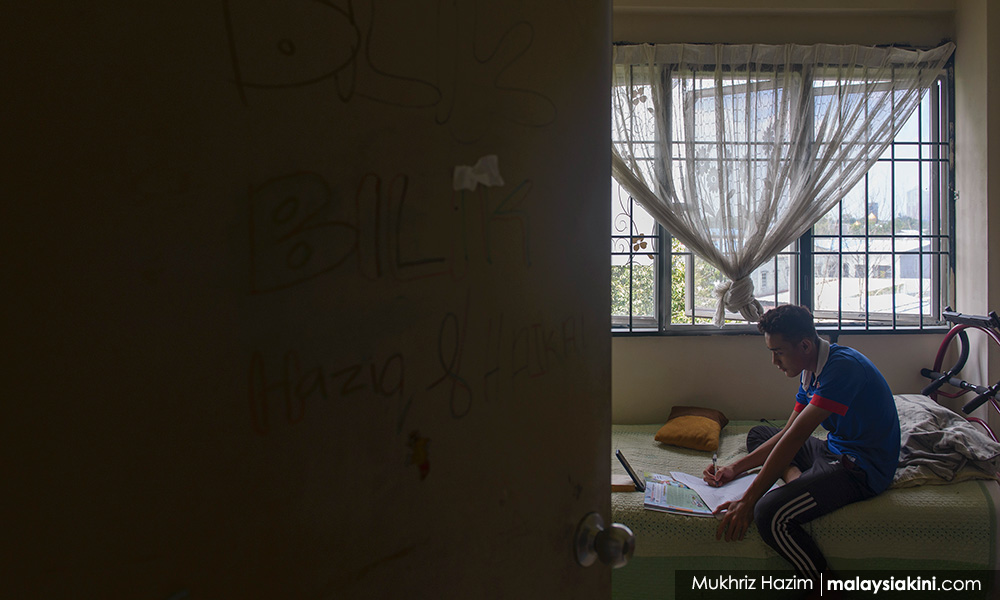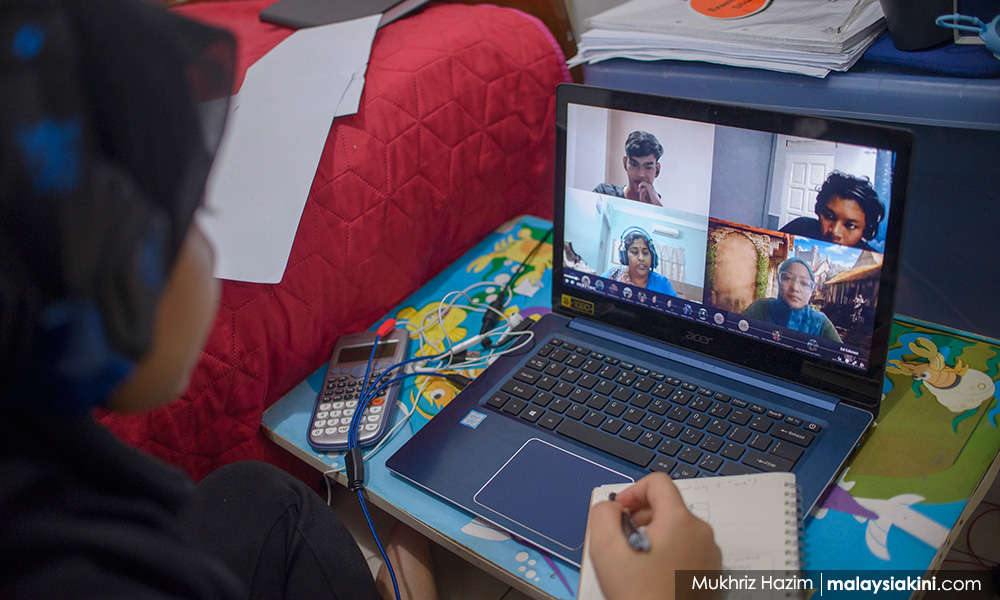Academic group Pergerakan Tenaga Akademik Malaysia (Gerak) is deeply concerned about the wellbeing and future of the many schoolchildren who do not have the facilities and devices at home to accommodate online learning.
In a statement today, the Gerak executive council said it was appalled by how slowly promised laptops were reaching students who needed them, and how the government had failed to prioritise school-goers in the vaccination programme.
In an apparent dig at former minister Nazri Abdul Aziz who said last week that he was heading overseas to register his five-year-old son for school, Gerak also reminded the government that such instances were not the norm.
"Not all Malaysians can afford the luxury of sending their children to study in boarding schools overseas.
"Online learning was touted right from the beginning by the Perikatan Nasional (PN) government as the way forward for Malaysian education. But there has been a wide chasm between promise and delivery," the group said.
"Little, for example, is now said about the 150,000 laptops Education Minister Mohd Radzi Md Jidin promised last year to distribute to students in 500 schools nationwide by February this year.
"What has now been revealed is that by April this year, only 13,000 (8.7 percent) of these laptops had been distributed. Gerak is appalled at this outcome," it added.
Gerak said that the various movement control orders notwithstanding, the Education Ministry should have assessed the situation and worked out a strategy to get the devices to the needy students.
"If not the Education Ministry, with its body of experts and departments, who else?
"And what is happening now? Let us be clear about the consequences if this is treated lightly.
"Without the hardware, and the supporting online connections, the extended lockdown will have extremely negative impacts on our children, especially the marginalised," stressed the group.
Last month when announcing the SPM 2020 results, Radzi said 400,000 students had achieved the best National Grade Average (GPN) index in the past five years.
"There was a recorded improvement in the performance of both students in urban and rural areas.
"However, the performance of rural students showed a higher increase compared to students in urban areas," he said, adding that this has reduced the urban-rural gap to 0.38 for SPM 2020.
These are unexpectedly strong results given class disruptions and persistent complaints about lack of materials, particularly in rural areas.
Gerak also took issue with what it called the haphazard decisions being made to simply close schools with little reflection, planning, and most importantly, the implementation of these plans in a systematic way.
"This exposes these children to higher risks of being mentally, physically and, indeed, educationally deprived.
"School closures, while convenient for ministry officials in their air-conditioned offices in Putrajaya, put tremendous pressure on parents who are already struggling to put food on the table.
"School closures compromise the quality of learning and more than likely will negatively affect the education and possible future of poor urban and rural children who do not have the advantages of their middle-class cousins," Gerak said.
Too low on vaccine priority
The group also pointed out that at the international level, one in four teachers is prioritised in the first phase of national rollout plans in 139 countries.
"Malaysia is nowhere on this list. The PN government promised to include teachers as part of the priority groups in the second phase of the National Covid-19 Immunisation Programme (NIP) in April which, to us, is already rather late and tame.
"Indeed, there is a lack of transparency in terms of the regime’s 'priorities' and execution of NIP at the second phase," Gerak said.
Since the government is reportedly going to distribute more than 14 million doses of vaccine to all states in July, the group said that would provide the perfect opportunity for the government to right a wrong by prioritising education workers in this programme.
"We believe that education institutions, teachers, educators, and students must be viewed as a priority by the government. Vaccinating all of them now must be an essential strategy to combat unnecessary unilateral closure of all schools," it added. - Mkini



No comments:
Post a Comment
Note: Only a member of this blog may post a comment.